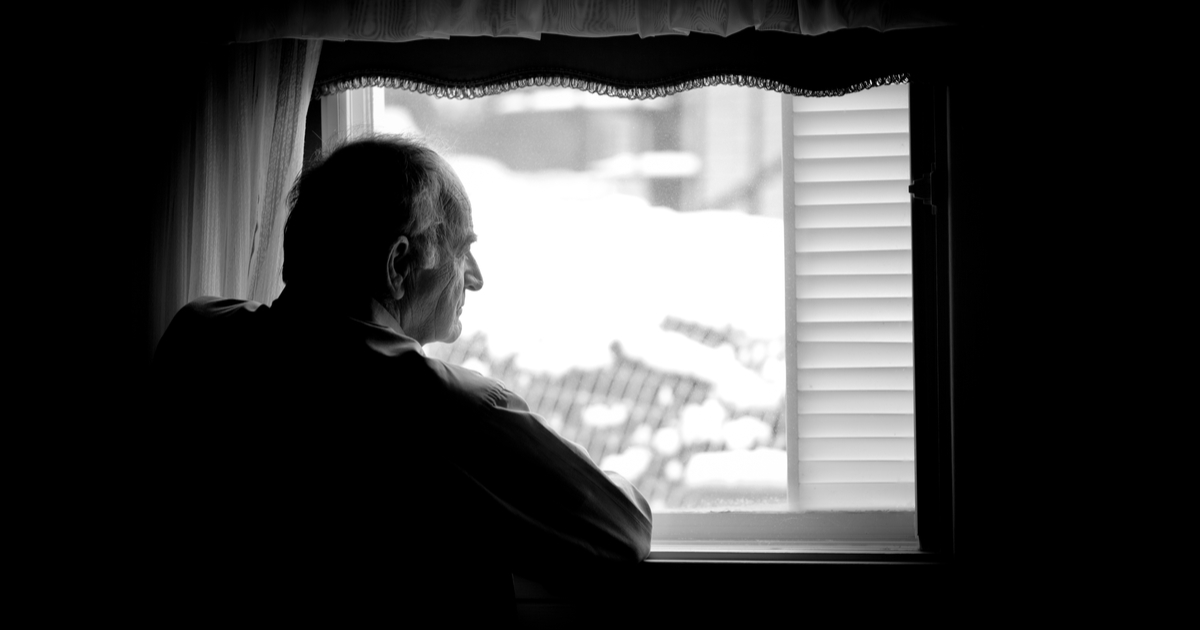Most people experience depression periodically, but for those aged 65-plus it’s an oftentimes overlooked problem that’s on the rise. In fact, roughly 25% of the elderly population currently suffers from depression, and half of all senior doctor visits include complaints about emotional distress.
Alarmingly, 20% of annual U.S. suicides are seniors, and overall only one-in-ten receive the professional counseling they need. Left unchecked, chronic depression can threaten a senior’s quality-of-life and ability to independently age in place at home. On the plus side, if you’re a caregiver for an at-home loved one who may be depressed, there are several reliable steps you can take to improve their health and well-being.
What Causes Seniors to Be Depressed?
According to mental health professionals, the main reasons why aging Americans suffer from depression are:
- Prolonged Illness or injury
- Chronic pain
- Loss of a close loved one, usually a spouse or adult child
- Financial difficulties
- Loneliness, notably if their family members live far away
- Memory loss and cognitive impairment
- Feeling like a burden to their family
Signs of Depression in the Elderly
It’s sometimes tricky to diagnose depression in seniors because its symptoms can be confused with those caused by certain medications, illnesses, or simply aging itself. For one, Parkinson’s can induce brain chemical changes that mimic depression. In general, clinicians look for two or more of these signs when diagnosing depression:
- Loss of appetite
- Fatigue
- Difficulty sleeping (80% of depressed seniors)
- Disinterest in activities once enjoyed
- Not keeping up their appearance or home like before
- Substance abuse including alcohol and prescription drugs
Grief is a major precipitating factor for depression, and the two oftentimes overlap. If your parents were married for many years, and mom passed away recently, dad’s going to go through a grieving period. As a result, you need to be attentive to his mental state and needs. In situations when chronic depression is suspected, there are some reliable ways to help your senior get through it.
Helping a Senior Overcome Depression
According to mental health specialists who work with depressed seniors, there are several good ways to help them overcome depression, including:
- Talk to them first. Depressed seniors love to throw out verbal smoke screens like: “I’m just tired”, or “I’ve got a lot on my mind”. Explain their value by sitting down and telling them how much they’re loved by you and others. Without using the “D word”, mention that you’re worried about their emotional state, and want to help. If you can get them to open-up, you’ll probably be able to determine what’s really bothering them.
- Encourage exercise. A great way to cleanse one’s mind of negative thoughts is exercise. If your loved one’s mobility is still good, encourage them to join a gym or take a class involving low-impact forms of exercise like Yoga, Tai Chi, water aerobics, or walking. Regular exercise will help them meet new friends, sleep better, and have a healthy appetite.
- Social activities. Depression thrives on isolation, so try to get your senior to participate in activities they once did, or maybe some fun new ones. Learning a new hobby in a group setting works well, along with joining a club or senior center in town. If driving is an issue, many communities provide free transportation for seniors. If your love one has reduced mobility, show them how to connect with others on social media.
- Counseling and support. More serious depression requires good mental health counseling, so offer to take them to a licensed professional. In severe cases where their immediate health and safety are in jeopardy, a medical doctor may order a hospital evaluation and/or prescribe antidepressant medications. If your loved one’s depression is due to an illness like cancer, or loss of a spouse, there are beneficial local support groups they can join. And when an illness or chronic pain are the culprits, those conditions need to be treated by a physician.
We Help At-Home Seniors Overcome Depression
Serving as a caregiver for an at-home senior with depression can wear you down after a while. When it’s time for a break, or you live too far away, contact Seniors Prefer Homecare. One of our experienced aids will be happy to comfort your loved one with the reliable in-home care they need. Our aids are all carefully-screened, well-trained and highly-qualified for assisting seniors with depression, and can deliver companionship services in an affordable and flexible package that’ll put your mind at-ease. We also specialize in family-trusted services like light housework, personal hygiene, transportation, meal preparation and medication reminders. To learn more now about how Seniors Prefer Homecare helps seniors age independently in place around the Huntsville and Tuscaloosa, AL areas, visit: www.seniorspreferhomecare.com.

